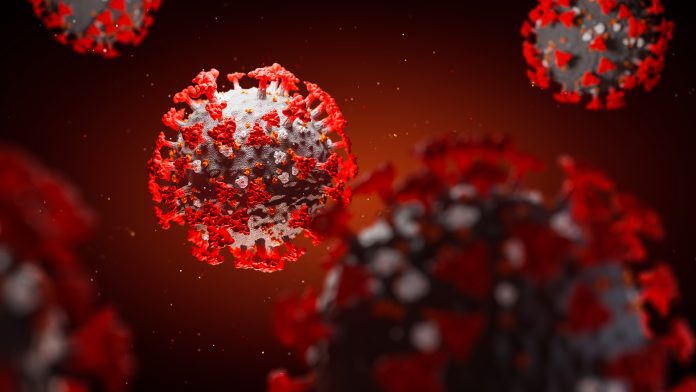
Scientists have identified an off-patent drug that could prevent COVID-19 infection and be used to tackle future variants.
A team of scientists from the University of Liverpool have found an off-patient liver disease drug that could be repurposed to prevent COVID-19 and any subsequent variants of this condition. The research involved a mix of ‘mini-organs’, donor organs, animal studies and patients.
The researchers showed that the drug, which is used to treat a type of liver disease, can block the way SARS-CoV-2 enters our cells, a receptor on the cell surface known as AC2. This drug targets the host cells and not the virus meaning it could be used to protect against emerging variants and other coronaviruses.
The research is published in Nature.
Trialling the drug’s ability to prevent COVID-19 using organoids
The research team from the University of Liverpool worked with researchers from the University of Cambridge. Dr Fotios Sampaziotis, from the University of Cambridge, had previously worked with organoids – ‘mini-bile ducts’- to study diseases of bile ducts. When the team used these, they found that the molecule known as FXR, which is present in large amounts in these bile duct organoids, directly regulates the viral entry to ACE2, effectively opening and closing it. They found that ursodeoxycholic acid (UDCA), an off-patent drug, used to treat primary biliary cholangitis, ‘turns down’ FXR and closes the ACE2 doorway.
The team showed in this new study that the same approach could be applied in ‘mini-lungs’ and ‘mini-guts’, the two main targets of SARS-CoV-2, to prevent COVID-19.
Does this approach work in living organisms?
The team then focussed on showing if the drug could prevent COVID-19 in living organisms.
The teams from Liverpool and Cambridge investigated to see if the drug could prevent infection in hamsters exposed to the virus, these animals are used as the ‘gold-standard’ model for pre-clinical testing of drugs against SARS-CoV-2.
They found that the hamsters treated with UDCA were protected against the delta variant of the virus, which was – at the time – partially resilient to existing vaccine response.
Professor Owen from the University of Liverpool’s Centre of Excellence for Long-acting Therapeutics (CELT) said: “Although we will need properly controlled randomised trials to confirm these findings, the data provide compelling evidence that UDCA could work as a drug to protect against COVID-19 and complement vaccination programmes, particularly in vulnerable population groups. As it targets the ACE2 receptor directly, we hope it may be more resilient to changes resulting from the evolution of the SARS-CoV-2 spike, which result in rapid emergence of new variants.”
Professor Stewart added: “The biggest challenge in developing COVID-19 interventions is the constant emergence of new virus variants. These findings offer real progress towards a low-cost, safe and universal therapeutic that will combat current and future SARS-CoV-2 infections.”
Does it work in human organs and people?
The researchers furthered their study by testing to see if the drug could prevent COVID-19 in human lungs and people.
The team used a donated pair of lungs, using a ventilator to keep them functioning. One lung was given the drug but both were exposed to SARS-CoV-2. The lung that received the drug did not become infected, whilst the other lung did.
In the human study, the team used eight healthy volunteers. Professor Ansgar Lohse from the University Medical Centre Hamburg Eppendorf in Germany. Professor Lohse explained: “We recruited eight healthy volunteers to receive the drug. When we swabbed the noses of these volunteers, we found lower levels of ACE2, suggesting that the virus would have fewer opportunities to break into and infect their nasal cells – the main gateway for the virus”.
First author and PhD candidate Teresa Brevini from the University of Cambridge said: “This unique study gave us the opportunity to do really translational science, using a laboratory finding to directly address a clinical need.
“Using almost every approach at our fingertips we showed that an existing drug shuts the door on the virus and can protect us from COVID-19. Importantly, because this drug works on our cells, it is not affected by mutations in the virus and should be effective even as new variants emerge.”










